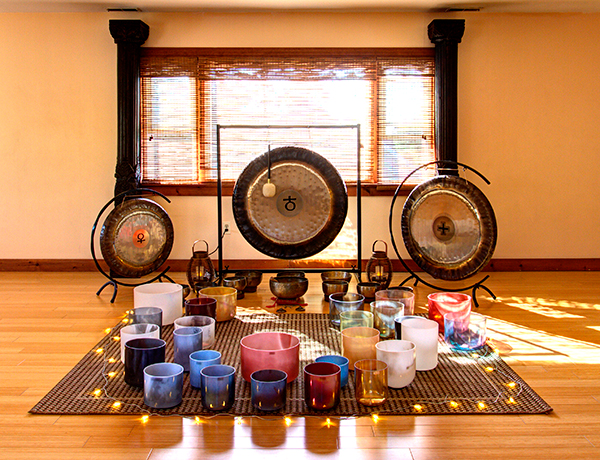
Stress - it is probably the underlying cause of almost every health complaint. The number one symptom people list as a health concern is fatigue. Tiredness from not sleeping well, and even when one does sleep well, can be directly attributed to stress. Being tired makes you feel stressed, as well. It's a vicious cycle.
Now that summer has wound down, teachers and students are back to school, after-sch0ol and weekend sports and other activities will take over that leisure time, changing schedules, traffic will increase, work projects' deadlines loom closer - you name it - it could be causing you stress. Some things may be causing you to have "monkey-brain" - not being able to stop your thoughts so you can sleep.
There are a lot of things you can't change - the Serenity Prayer may be helpful:
God (or whomever or whatever you pray to):
Grant me the serenity to accept the things I cannot change;
the courage to change the things I can;
and the wisdom to know the difference.
To gain serenity, courage and wisdom, it's helpful to already have a little! As you learn what helps you, don't hesitate to use some supplements to help your sleep and stress-relief, so you can enhance your balance of these important tributes. They don't need to be life-long, if you can bring some of the techniques listed below into your life on a regular basis.
Some helpful supplements:
1) Calmagen - A classic herbal stress management formula used in traditional Chinese medicine to nourish and quiet the heart. Designed for individuals who have feelings of anxiety and have difficulty resting due to stress. Ideal for those who are “stressed and wired”.
2) Enerdren - Features concentrated adaptogens, including ginseng root, cordyceps, and rhodiola extracts that support an adaptive response to stress. Designed to build resilience and enhance stamina in individuals who are feeling weak and fatigued due to stress.
3) Relora - Natural proprietary blend of a patented extract of Magnolia officinalis and Phellodendron amurense. Formulated to promote relaxation and calmness. Relora has excellent stress-management properties without causing unwanted sedation or drowsiness.
There are some others that are helpful, as well, but it's best to come into Ford's and speak with one of our knowledgeable pharmacists about what is best for your unique situation.
To further gain and balance serenity, courage and wisdom, make it a priority to have self-time, as well as togetherness with whomever you want to spend time. Schedule it! Even if it's 15 minutes! Then, find the things to do that de-stress you. We made ten suggestions in our holiday de-stress blog - here they are again with the references and more specific tips:
 1) Take a warm bath - use Epsom salts and lavender essential oil - the Magnesium in the Epsom salts, along with the warm water and lavender, are relaxing to the muscles, the brain and your soul. This should help you get a good night's sleep.
1) Take a warm bath - use Epsom salts and lavender essential oil - the Magnesium in the Epsom salts, along with the warm water and lavender, are relaxing to the muscles, the brain and your soul. This should help you get a good night's sleep.
2) Drink a cup of tea - Lemon balm and chamomile are 2 great relaxing teas. There are blends on the market, especially for de-stressing and relaxing.
3) Meditate, do guided visualization, or just breathe deeply - and use aromatherapy while doing it. Make yourself a spray with Lavender, Ylang Ylang and Bergamot (or other combinations that you like) or put a few drops of each in a diffuser with water. Even if you don't know how to meditate, just doing breathing exercises, such as inhaling to the count of 4, holding for the count of 2, exhaling to the count of 6, holding for a count of 2, is meditative. You'll stop your brain from thinking about other things because you're concentrating on the breath and the count, and deep breathing itself calms the mind, body and soul.

4) Do some yoga poses - do what you know and like, then end with Savasana (Corpse Pose) or Viparita Karani, where your back is pressed on the ground and your legs are up the wall. These are especially good for calming the body and helping with sleep.
5) Listen to soothing music - or whatever music you enjoy. In fact, when you can, just have it in the background or use headphones with low volume. This can be used in combination with all of the above (no headphones in the bathtub please). Certain frequencies of sound help with stress - From Ascension Healing, in Moncton, "Sound therapy works by leading us into a relaxed and deep inner awareness akin to a deep state of meditation. The vibrations from the instruments sooth the body and encourage the release of stress/tension by way of entrainment. This means the body responds to the frequency of the instrument by lowering or raising its own frequency to match it. Sound Therapy also eases physical pain and discomfort. Our energy centers also become stimulated and begin to release emotional content from past experiences and traumas from the body." 
6) Get a massage - even if you can't go to a massage therapist, invest in a hand massager and use it on your neck and shoulders or ask a loved one to give you a massage. It doesn't have to be deep to be therapeutic.
7) Touch - hugs with your family and friends, kisses with your significant other, and SEX. There is a saying by Virginia Satir, a respected family therapist, “We need four hugs a day for survival. We need eight hugs a day for maintenance. We need twelve hugs a day for growth.” In the communities studied due to their healthy longevity, the most important factor found was loving relationships and respect for others of all ages. Dr. Mercola says,"a 20-second hug, along with 10 minutes of hand-holding, also reduces the harmful physical effects of stress, including its impact on your blood pressure and heart rate. This makes sense, since hugging is known to lower levels of stress hormones like cortisol."
8) Eat mood boosting foods (and avoid mood-busting ones). Sugar and alcohol are only temporary mood-boosters; in the long run, they are detriments to your stress level and all areas of health. Instead, boost with your mood with Super-foods. Include kale and a piece of salmon in your lunch salad. eat a handful of nuts or a banana for snacks. Must have chocolate? Make it DARK, and just an ounce. Many super-foods can be included in a smoothie, as well. Try blueberries, goji berries, kale, banana, avocado, cashews or almonds (or the milk) and bit of chocolate and/or vanilla protein or meal-replacement powder (watch the sugar content). Use honey or maple syrup if you need sweetener.
9) Write or do art - Journaling and painting are very therapeutic. Journaling is a great way to release negative thoughts and understand your feelings about events. Drawing and painting are creative outlets that allow you to express yourself. You don't need to be good at it for it to work.
10) Exercise - if you enjoy it, go the gym or take an aerobic class. However, simply taking a walk is helpful. If the weather is cooperative, do it outdoors and enjoy nature. The scenery will help de-stress you, as well. It's all about your brain producing neurotransmitters called endorphins.
And I'm adding 2 more:
11) Laughter Yoga - Laughter lowers the level of stress hormones (epinephrine, cortisol, etc) in the blood. The body and brain can't tell the difference betwen fake laughter and spontaneous laughter.

12) Volunteer for a good cause (that has meaning for you) - Studies have shown that volunteering helps people who donate their time feel more socially connected, thus warding off loneliness and depression. It has positive implications that go beyond mental health. A growing body of evidence suggests that people who give their time to others might also be rewarded with better physical health—including lower blood pressure and a longer lifespan.
Stress isn't all bad; it motivates us, and stress on body systems make them work better (such as stress on muscles and bones makes them grow stronger). However, it's only when stress is managed that our bodies can work the way they're supposed to. Digestion improves, absorption of nutrients increases, and a lot of health problems can decrease, if not disappear. It's called "Rest and Digest" and it's when our Parasympathetic Nervous System is in control (as opposed to the Sympathetic Nervous System, which is the "Fight or Flight" syndrome stress produces).
We all have a tendency to make time for what we want to do and say we don't have time when it's something we don't want to do. Learn the art of saying no when you really don't want to do something or don't have time, but also learn the power of saying yes to the things you DO want to do, that make you feel good, and contribute to your well-being!

Stay tuned for events to help you learn how to use these Stress Managaement techniques in your life! In the meantime, if you would like more information, pleae contact Ellen at This email address is being protected from spambots. You need JavaScript enabled to view it.. If you would like a personal one-on-one consultation about your health issues with Dr. Peter Ford, Dr. Taylor White, or our nurse Sharon Rose-Couturier, please contact Cheryl Downing at This email address is being protected from spambots. You need JavaScript enabled to view it. or by calling her direct line at (506) 384-5236.
These are some of the websites / articles I used - feel free to click on these for more detail about the above information.
http://www.webmd.com/diet/ss/slideshow-diet-for-stress-management
http://greatist.com/happiness/23-scientifically-backed-ways-reduce-stress-right-now
http://www.womenshealthmag.com/health/de-stress-instantly
http://www.medicalnewstoday.com/articles/309741.php
http://www.cnn.com/2014/07/29/health/yoga-reduce-stress/index.html
http://www.foodmatters.com/article/12-foods-to-boost-your-mood-energy
http://www.mayoclinic.org/healthy-lifestyle/stress-management/in-depth/exercise-and-stress/art-20044469
https://www.everydayhealth.com/longevity/journal-for-stress-relief.aspx
http://www.alive.com/lifestyle/draw-your-stress-out/
https://ascensionhealingcentre.com/articles/
https://laughteryoga.org/laughter-yoga/
https://www.health.harvard.edu/blog/volunteering-may-be-good-for-body-and-mind-201306266428






